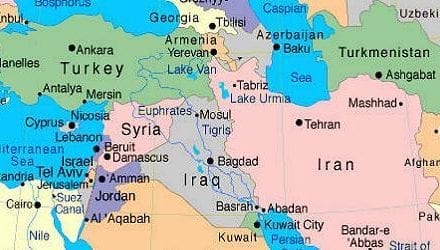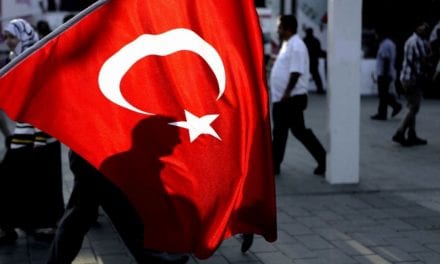By Umur Yedikardeş, Ahval
Islamist movements grew in reaction to urbanisation and modernisation in the Middle East, but now those groups are in power and seen to be as corrupt as their predecessors a new wave of secularism could begin to emerge as a result of alienation from the new elite, said Halil İbrahim Yenigün, an academic at the Stanford University Center for Islamic Studies.
In the 1950s, political scientists postulated that modernisation would inevitably lead to secularisation, but in Arab countries millions of Muslims turned to political Islam as a result of modernisation and urbanisation. In Turkey, religious groups and political movements also began to organise amongst the conservative poor who had migrated to the cities.
The political ancestors of Turkey’s current ruling Justice and Development Party (AKP) tried to rally the poor, both workers and small business owners, around the concept of social justice. Meanwhile religious groups like the Gülen movement tried to provide better access to education.
“Many thought that this way of urbanisation proved the failure of the modernist theories,” Yenigün told Ahval in an interview. “Is this really true, or to the contrary, has urbanisation and modernisation occurred around religious organisations at the first stage of a global transformation and are we now at another stage where the failure of Islamisation projects and the moral corruption within these groups creating an alienation?” he asked.
“I mean, can the next stage be secularisation?”
Turkish Islamist opposition groups used to regard the secular nation state as the antagonist, but when the religious community began to move up the social and economic ladder it started to identify itself with the state. Yenigün said that process was still ongoing and became more explicit after the failed coup attempt of 2016.
“Conservative masses are the backbones of states all over the world. The army goes to war, they support it. Whatever the state does to oppress the opposition, they stand behind it. Those middle class people are the guarantees for the sustainability of societies,” he said.
But before President Recep Tayyip Erdoğan’s AKP came to power in 2002, the staunchly secular armed forces used their strong influence to exclude Islamists from power.
“Though those conservatives were always ready to fall in love with their army and the state, their one sided love was not reciprocated, they were always rejected,” Yenigün said.
“However, when Erdoğan consolidated his power, the state and the army reciprocated, this identification occurred and the conservative segment found its real place as is the case in other societies. Maybe they are now embracing their state and army with a greater love given their a century-long longing for it,” he said.
But the close identification of religion with the state, such as in Turkey where all mosques are under state control and all imams to public employees, could have dangerous unknown consequences.
“This is the most complex feature of this transformation and is the one we barely understand. Since the discourse based on the claim of “raising a religious generation” appeared on stage, a widespread Islamisation policy is being implemented. They want to integrate the state, religion, and the society. However, to what extent can this impact the social transformation? We don’t know this,” Yenigün said.
The policy of imposing a Muslim identity is at odds with the demand on young people to become more outward looking and able to reap the potential benefits of the global economy.
“As a result of the insistence on implementing neo-liberal economic policies, young people’s futures are dependent on foreign language skills and their competitiveness in a global world. There are different processes that want to draw young people in different directions. We don’t know which one of those processes will be the winner,” he said.
Under successive secular governments in the last century, Turkey resembled Egypt, but it is now more akin to Iran, Yenigün argued.
“Egypt was an example of a civil society Islamising itself under secular rule. On the other side of the spectrum, Iran, which was Islamised by the state, produces the highest number of atheists,” he said. Islamisation from above, provokes a reaction from within society.
“As the religious and conservative groups became wealthier, they could not form a lifestyle different than the dominant one, no mater how much they wanted to,” said Yenigün. That resulted in something of a convergence between the old and new elite, especially among young people.
But the Gezi Park protests of 2013 – the biggest popular challenge to AKP rule – proved to be a blow to the cultural and lifestyle convergence between young people from the new pious elite with those from secular and liberal backgrounds.
The Islamist youth was forced to take sides with some fearing they could lose their newfound freedoms in a return to the old secular order and others beginning to see the state as oppressing the opposition in the same way the Islamists had previously been persecuted.
Authorities attempted to polarise the opposition and young people “had to respond to the message coming from the top of the state which told them that they were different”.
The future though could lead to a backlash from with the ruling party.
“Even if they are close to the Justice and Development Party right know, in the future the children of the AKP cultural elite might grow tired of this and dialectically might create an internal threat inside the AKP,” Yenigün said.


















